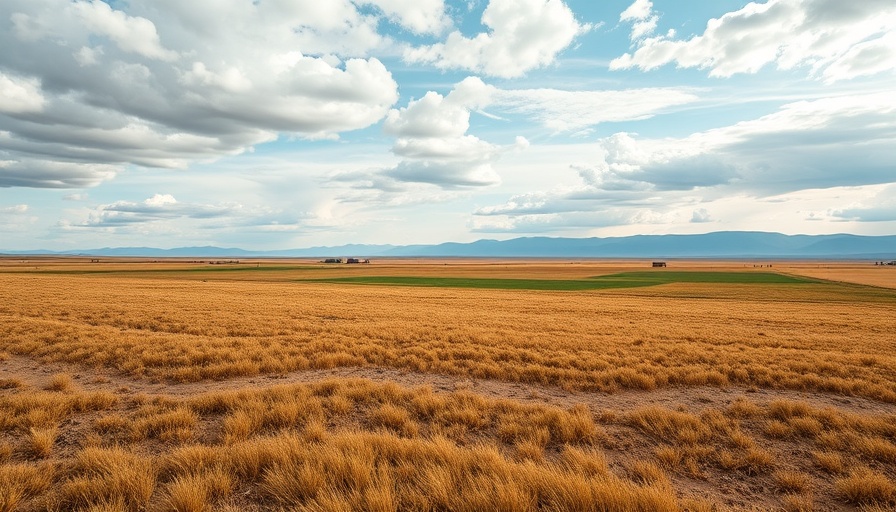
How Tourism Fuels Conservation Efforts Worldwide
Traveling does so much more than feed our wanderlust—it can help save the planet! As tourism continues to grow, it becomes increasingly crucial for travelers to be mindful of how their vacations impact the environments and communities they visit. But did you know that your travel dollars can directly contribute to conservation efforts? Here’s how some beautiful destinations are marrying tourism and environmental stewardship for the good of our planet.
Exploring Botswana: A Leader in Eco-Tourism
Botswana is often hailed as a shining beacon for eco-tourism. With its rare landscapes, including the sprawling Okavango Delta and the vast Kalahari Desert, travelers are drawn to experience its rich wildlife, including elephants and lions. The revenue from responsible tourism in this country is channeled directly into conservation initiatives aimed at protecting these magnificent ecosystems. For tourists, staying at eco-lodges not only offers a fantastic experience but also supports the preservation of Botswana's exquisite nature.
Discovering Costa Rica: The Green Heart of Central America
Costa Rica is a traveler's paradise where lush rainforests, diverse wildlife, and sustainable practices come together. This country is leading the charge for conservation by establishing numerous national parks funded through tourism revenue. Engaging in eco-conscious tours allows visitors to dive into the beauty of Monteverde Cloud Forest or the Osa Peninsula while fueling conservation projects. The ecolodges are the cherry on top, often built from local materials and committed to zero-waste initiatives—talk about a win-win!
Kenya: Where Safaris Meet Conservation
Kenya is synonymous with breathtaking landscapes and incredible wildlife. Here, responsible safari tourism does not just provide unforgettable experiences; it directly ties into conservation. Visiting private conservancies, like Ol Pejeta and Lewa Wildlife Conservancy, gives you the chance to see the endangered black rhino and be part of initiatives that protect them. By choosing ethical tour operators, travelers can enjoy the majestic sights of Kenya while ensuring that local communities and wildlife benefit from their experiences.
Galapagos Islands: Protecting Nature’s Classroom
The Galapagos Islands are a bucket-list destination not only for their stunning beauty but also as an example of how tourism can fund conservation efforts. This UNESCO World Heritage site is home to unique species and ecosystems that remain vital to scientific understanding and ecological study. Sustainable tourism practices on the islands include strict visitor regulations and eco-friendly accommodations that mitigate the impact of tourism. A visit to the Galapagos, therefore, not only provides a once-in-a-lifetime experience but also helps maintain the island’s delicate ecosystems for future generations.
Why Your Travel Choices Matter
Choosing destinations that promote sustainable practices is essential. Not only do these trips help preserve the environment and wildlife, but they also enhance the local community's economic stability. Supporting eco-friendly tourism means that travelers are actively participating in conserving the very beauty that drew them to these locations in the first place.
Actionable Insights for Sustainable Travelers
To make a positive impact through travel, here are a few tips for sustainable travelers:
- Research Before You Go: Learn about the conservation efforts in your chosen destination and seek out responsible tour operators.
- Support Local and Eco-Friendly Businesses: Opt for lodges that focus on sustainability and local engagement.
- Minimize Waste: Pack reusable bags, bottles, and utensils to limit your ecological footprint.
- Get Involved: Participate in local conservation initiatives during your travels; many places offer volunteer opportunities that allow you to give back to the environment.
Conclusion: Your Role as a Sustainable Traveler
Travel is not just about experiencing new cultures and breathtaking landscapes; it can also be a catalyst for positive change. By considering the environmental and social implications of our travel choices, we can help secure a healthier planet for future generations. So next time you plan a trip, remember that being a sustainable traveler is about more than just enjoying the beauty around us—it's about protecting it!
 Add Row
Add Row  Add
Add 




 Add Row
Add Row  Add
Add 

Write A Comment